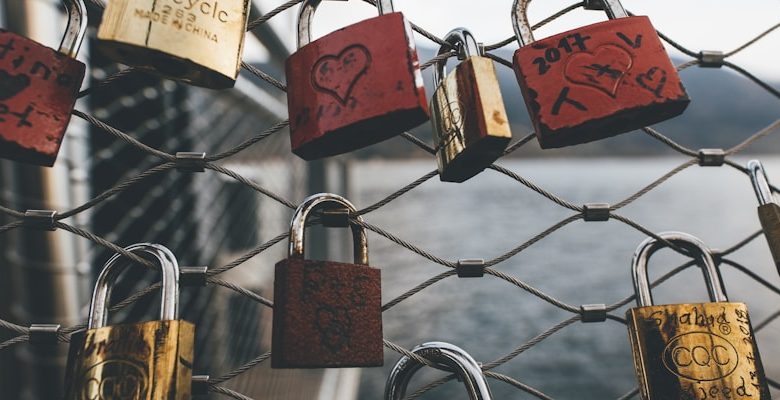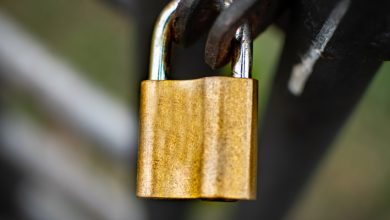How to Educate Yourself About Crypto Security Risks

- Understanding the importance of crypto security
- Common security risks in the world of cryptocurrency
- Steps to enhance your knowledge on crypto security
- Protecting your digital assets from cyber threats
- Resources to stay informed about crypto security risks
- Practical tips for securing your cryptocurrency investments
Understanding the importance of crypto security
Understanding the significance of crypto security is crucial for anyone involved in the world of cryptocurrency. Crypto security refers to the measures put in place to protect digital assets from theft, hacking, and other malicious activities. Without proper security protocols, individuals risk losing their investments and sensitive information to cybercriminals.
One of the key aspects of crypto security is the use of secure wallets to store digital currencies. These wallets come in various forms, including hardware wallets, software wallets, and paper wallets. Hardware wallets, for example, are considered one of the most secure options as they store the user’s private keys offline, making them less vulnerable to online attacks.
Another important consideration in crypto security is the use of strong passwords and two-factor authentication (2FA). Weak passwords can easily be cracked by hackers, giving them access to your crypto holdings. By using complex passwords and enabling 2FA, you add an extra layer of protection to your accounts and assets.
It is also essential to stay informed about the latest security threats and trends in the cryptocurrency space. By keeping up to date with news and developments, you can better understand the risks involved and take appropriate measures to safeguard your investments. Education is key to protecting yourself in the ever-evolving landscape of crypto security.
Common security risks in the world of cryptocurrency
There are several common security risks that individuals should be aware of when navigating the world of cryptocurrency. These risks can pose serious threats to the safety of your assets and personal information if not properly addressed.
- Phishing scams: One prevalent risk in the crypto space is phishing scams, where malicious actors attempt to deceive individuals into sharing sensitive information such as passwords or private keys. These scams often come in the form of fake websites or emails that appear legitimate, tricking users into giving up their valuable data.
- Malware attacks: Another significant risk is malware attacks, where hackers use malicious software to gain access to users’ devices and steal their crypto assets. It is essential to have robust antivirus and antimalware programs installed on your devices to protect against these types of attacks.
- Exchange hacks: Cryptocurrency exchanges are prime targets for hackers due to the large amounts of assets they hold. Exchange hacks can result in significant financial losses for users, highlighting the importance of choosing reputable exchanges with robust security measures in place.
- Wallet vulnerabilities: The security of your cryptocurrency wallet is crucial, as any vulnerabilities can lead to the loss of your assets. It is essential to use hardware wallets or secure software wallets and follow best practices for securing your private keys.
- Social engineering attacks: Social engineering attacks involve manipulating individuals into divulging confidential information, often through psychological manipulation or impersonation. It is crucial to remain vigilant and never share sensitive information with unknown parties.
By educating yourself about these common security risks and taking proactive steps to protect your assets, you can minimize the likelihood of falling victim to malicious actors in the crypto space. Stay informed, stay vigilant, and prioritize the security of your cryptocurrency holdings.
Steps to enhance your knowledge on crypto security
To enhance your knowledge on crypto security, there are several steps you can take to stay informed and up-to-date on the latest risks and threats in the industry.
- Stay informed by following reputable sources of information such as security blogs, forums, and news outlets that specialize in cryptocurrency security.
- Engage with the crypto community by participating in online discussions, attending conferences, and networking with other professionals in the field.
- Take online courses or tutorials on crypto security to deepen your understanding of the technology and best practices for securing your assets.
- Practice good security hygiene by using strong, unique passwords for your accounts, enabling two-factor authentication, and keeping your software and hardware up-to-date.
- Consider investing in a hardware wallet to store your cryptocurrencies securely offline and protect them from online threats.
By taking these proactive steps to educate yourself about crypto security risks, you can better protect your investments and navigate the complex landscape of cryptocurrency with confidence.
Protecting your digital assets from cyber threats
When it comes to protecting your digital assets from cyber threats, it is crucial to stay informed and educated about the potential risks associated with crypto security. By understanding the various ways in which hackers can infiltrate your accounts, you can take proactive measures to safeguard your investments.
One of the most important steps you can take to enhance your crypto security is to use a secure wallet to store your digital assets. Choose a wallet provider that offers multi-factor authentication and encryption to prevent unauthorized access to your funds. Additionally, regularly update your wallet software to patch any security vulnerabilities that may be exploited by hackers.
Another key aspect of protecting your digital assets is to be wary of phishing scams and fraudulent websites that mimic legitimate crypto platforms. Always verify the authenticity of the websites you visit and never share your private keys or passwords with anyone. Remember, reputable crypto companies will never ask for this sensitive information.
Furthermore, consider diversifying your investments across multiple wallets and exchanges to minimize the impact of a potential security breach. By spreading your assets across different platforms, you can reduce the risk of losing everything in the event of a hack.
Lastly, stay informed about the latest security trends and best practices in the crypto industry. Join online communities and forums where you can learn from experienced traders and security experts. By staying proactive and vigilant, you can better protect your digital assets from cyber threats and enjoy peace of mind while investing in the exciting world of cryptocurrency.
Resources to stay informed about crypto security risks
Stay up to date with the latest crypto security risks by following these resources:
- Crypto News Websites: Websites like CoinDesk and CoinTelegraph provide regular updates on security risks in the cryptocurrency space.
- Security Blogs: Follow industry experts and security professionals who regularly publish articles and blogs on crypto security best practices.
- Online Forums: Engage with the crypto community on forums like Bitcointalk and Reddit to stay informed about the latest security threats and vulnerabilities.
- Security Alerts: Sign up for security alerts and notifications from crypto exchanges and wallet providers to be notified of any security incidents.
- Industry Reports: Keep an eye out for industry reports and studies on crypto security trends and threats to understand the security landscape better.
Practical tips for securing your cryptocurrency investments
When it comes to securing your cryptocurrency investments, there are several practical tips you can follow to minimize the risks of theft or hacking. By taking a proactive approach to security, you can protect your assets and ensure peace of mind.
- Use a hardware wallet: Consider storing your cryptocurrency in a hardware wallet, which is a physical device that keeps your private keys offline and away from potential hackers.
- Enable two-factor authentication: Add an extra layer of security to your accounts by using two-factor authentication, which requires both a password and a secondary verification method.
- Keep software up to date: Regularly update your wallet software and any other applications related to your cryptocurrency investments to patch any vulnerabilities.
- Avoid public Wi-Fi: Refrain from accessing your accounts or making transactions on public Wi-Fi networks, as they are more susceptible to hacking.
- Backup your keys: Make sure to regularly backup your private keys and store them in a secure location, such as a safe or a safety deposit box.
By following these practical tips, you can significantly reduce the likelihood of falling victim to cyber attacks and safeguard your cryptocurrency investments for the long term.



